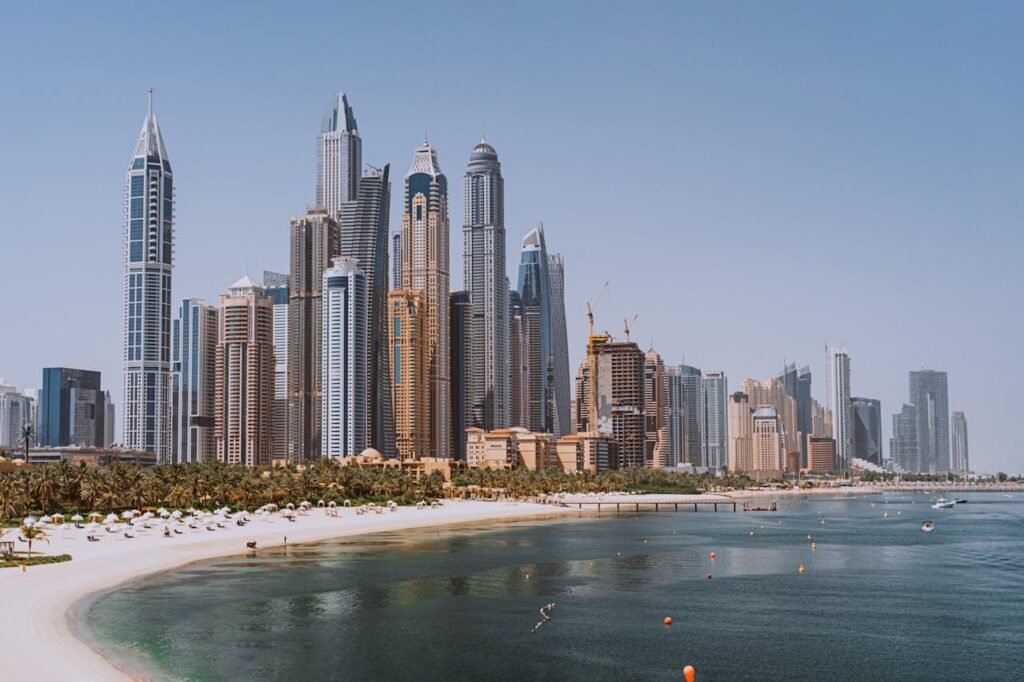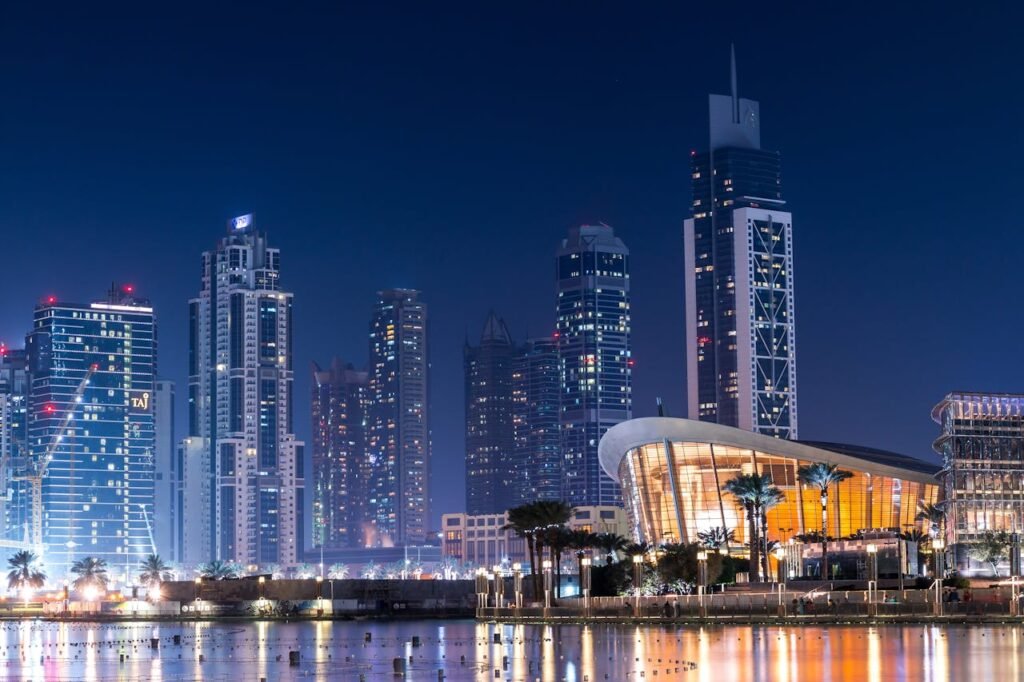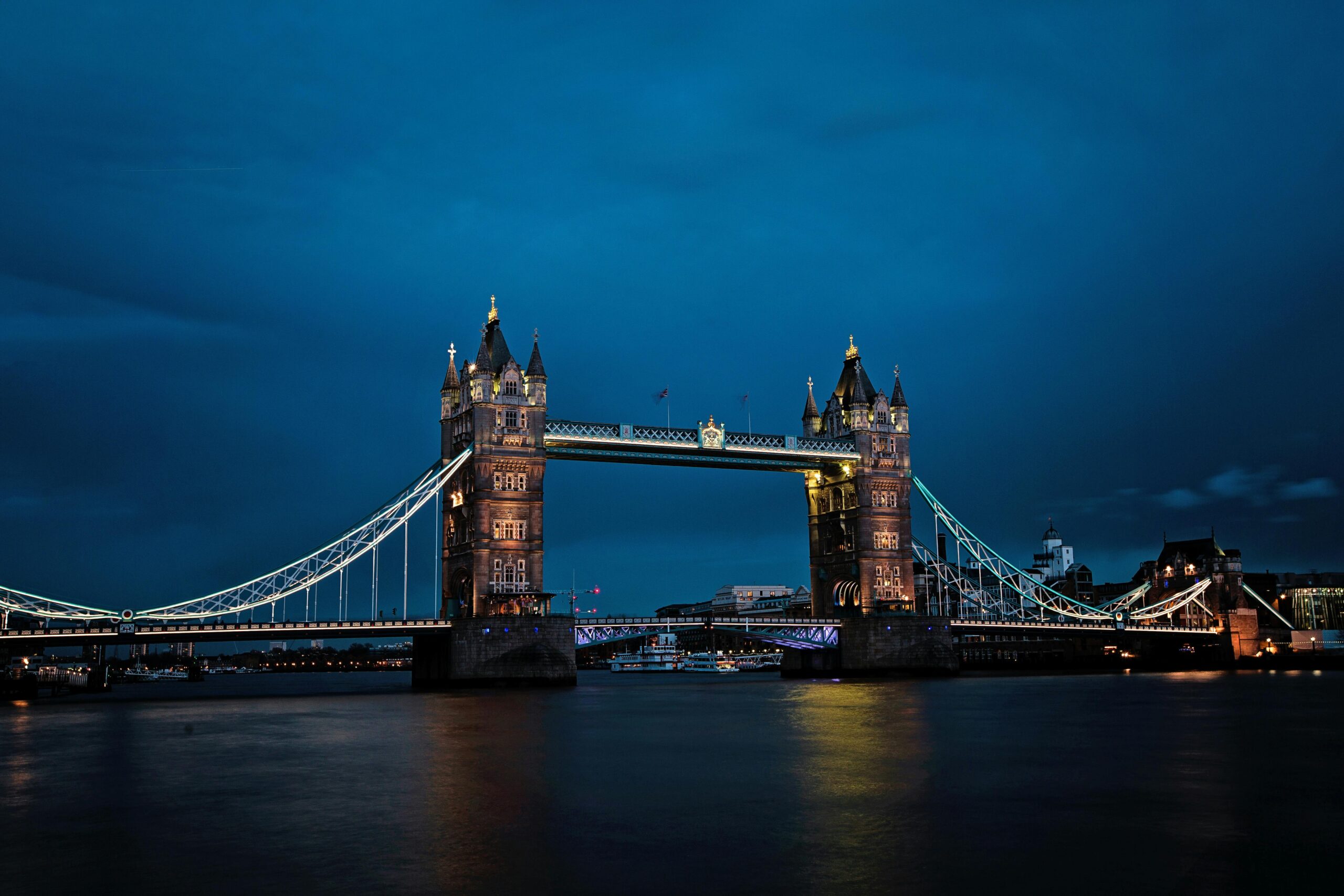- Key Takeaways
- Setting the Scene: Two Global Hubs
- The Core Clash: Key Investment Factors
- Financial Realities: Costs & Returns
- Navigating Regulations: Legal & Ownership
- Lifestyle & Long-Term Living Appeal
- Future Trajectories: Market Predictions
- Conclusion
- Frequently Asked Questions
Key Takeaways
- Dubai provides short-term capital appreciation and high rental yield potential. Its predictable legal process makes the city attractive for investors looking for strong returns in a tax-averse environment.
- London stands out with its stable market, diverse property options, and strong global financial connections, offering long-term security and resilience through market fluctuations.
- Investors should carefully compare upfront costs, ongoing expenses, and financing options, as the cost of ownership and available mortgage products differ greatly between the two cities.
- Understanding local regulations, tax implications, and ownership rights is essential to avoid legal complications and maximize investment returns in both Dubai and London.
- Lifestyle factors such as climate, amenities, and cultural offerings should be weighed alongside financial considerations, as they can impact property demand and long-term value.
- Staying updated on market trends, economic shifts, and urban development plans in both cities will help investors make informed and strategic decisions for future growth.
Investing in Dubai property and London takes some serious thought. You’re talking about investing in real estate between two completely different markets, legal environments, and return profiles.
What lures buyers to Dubai are no property tax, rapidly appreciating new construction, and more straightforward foreign ownership. London, on the other hand, has an established past, a predictable rental need, and rigorous legal regulations to protect landlords.
Whereas in Dubai, condos and new homes dominate the landscape, in London one finds classic townhomes and high-rise flats. Both cities have a different currency and the average cost per square foot varies significantly by region.
Local regulations, rental regulations, and purchase procedures further distinguish them from one another. To better clarify the decision, the following sections outline important factors to consider for each city.
Setting the Scene: Two Global Hubs
Dubai and London continue to be top destinations for real estate investors, but each city is going in very different directions. Dubai is particularly alluring to buyers who want to quickly scale their portfolios. Its business-friendly regulations and tax incentives further ensure its place as the destination of choice.
London, by contrast, meshes historical charm with a contemporary international attitude. That’s why it’s a darling among investors looking for long-term appreciation and transplants looking for a dynamic urban lifestyle. Together these two global hubs provide a fascinating alternative perspective on urban life and investment.
Dubai’s Dazzling Property Ascent
Dubai’s dazzling property ascent has seen its real estate scene race ahead. A single year from 2001 to 2002 saw an average increase of 50% in prime property prices, illustrating just how ravenous demand has grown. Luxury residential units, corporate campuses, and international flag hotels dominate the development.
Buyers can get a lot more for their buck than in London! The city’s desire for luxury, from gold-plated malls to Michelin-starred cuisine, resonates perfectly with the tastes of international buyers. Policies such as Golden Visas and freehold zones that allow foreigners to own property with fewer restrictions have supplemented Dubai’s allure.
Significant developments, such as the new metro lines and Expo City, have further changed its skyline. They make the city look future-ready!
London’s Established Market Appeal
London’s established market appeal is rooted in its strong history of safe, long-term growth. During crises, values become even more important to stay grounded because values don’t change. Whether an investor is looking for a traditional townhouse, loft style living, or flats in former mansions, the choice is plentiful.
London’s role as a global finance hub keeps demand high, and its cultural scene—museums, theaters, and food—adds extra pull. Even with high prices and a very tight space, particularly for parking downtown, rental demand remains robust.
Dubai tends to have higher returns, while London’s return potential falls short of Dubai’s. Dubai’s draw comes from its relative stability.
The Modern Investor’s Dilemma
So deciding between Dubai and London isn’t just an arithmetic exercise. Dubai provides higher rental yields—5-8%—while London is around 3-4%. Yet with rapid expansion comes danger, and investors must be aware of their local market dynamics and movements.
Both cities use new technologies to protect buyers and sellers alike, while making transactions simpler and quicker than traditional deals. Local laws and customs often make an outsized impact.
The Core Clash: Key Investment Factors

Real estate investors consider a lot of factors when choosing between Dubai and London. Other key investment factors are rental yields, capital appreciation, market volatility, emerging or developed market, fiscal climate, investor protections and location. Both cities attract international attention, but they exhibit profound contrasts in the factors that fuel their respective markets.
1. Price Points: Value Per Square Foot
| City | Avg. Price per Sq Ft (USD) | Best Value Areas |
|---|---|---|
| Dubai | $350 – $600 | Jumeirah Village Circle, Dubai Marina |
| London | $1,200 – $2,000 | East London, Croydon |
Dubai’s prices are lower, making it easier to enter the market and attracting buyers looking for good value. London’s remarkably high real estate costs are a product of its aging, mature market and unprecedented global demand.
For investors, Dubai is much more value for the money, particularly in the newer projects. London’s prime neighborhoods, such as Kensington, are extremely expensive but appreciate in long-term value.
2. Rental Returns: Yielding Potential Now
| City | Avg. Rental Yield (%) |
|---|---|
| Dubai | 5 – 8 |
| London | 2.4 |
Dubai’s rental returns are driven by robust demand, a favorable tax-free environment, and increasingly rental-friendly regulations. London’s low yields are in keeping with the high land values and taxation levels such as stamp duty.
As discussed above, rental income tends to be more consistent in Dubai’s developing zones, though London’s developed market offers a lower-risk proposition.
3. Growth Prospects: Future Value Gains
Dubai’s real estate expansion is linked to the development of new infrastructure and the luxury housing market. Places such as Downtown Dubai experience extreme appreciation.
London’s growth today is time-locked under prior accrued regulation and changing market dynamics. Both cities provide abundant new neighborhoods for expansion, but Dubai’s development drive is more accelerated.
4. Market Dynamics: Stability vs Volatility
While Dubai’s market is more volatile, it provides greater upside potential and greater downside risk. London’s property investment environment is characterized by stability protected by well-established regulations and the confidence that comes with history.
Watching these economic trends and global shifts can shift the market in both directions. Monitoring these trends is the best way to combat risk.
5. Investor Accessibility: Buying & Selling
Take Dubai, for example, which offers foreigners easy buying, freehold ownership options, and additional investor-focused perks such as residency visas. London has much heavier taxes and regulations, but agents are still critical in helping buyers find their way.
These virtual resources are valuable in both places; however, Dubai’s digital ecosystem is more rapid-paced and collaborative.
Financial Realities: Costs & Returns

When you compare Dubai vs London real estate, think about the price as well as ROI. Getting a handle on the day-to-day math is important for creating long-term value! These cities all come with a unique set of expenses and regulations, so it’s valuable to dig into the individual stats.
Upfront Investment: Getting Started
Purchasing in Dubai or London involves substantial initial investments. In Dubai, non-resident buyers are typically required to make a 25% to 40% downpayment of the property value. London’s down payments for foreign buyers are a minimum of 25%.
Add to that legal fees, agent commissions and—particularly in the UK—Stamp Duty Land Tax, which can go up to 12%. That sticker price only tells half the story. For example, $1 million gets you just over 355 sq. By comparison, it locks in around 980 sf in the hottest areas of Dubai.
Planning and budgeting for additional costs such as preliminary surveys, insurance, and fair market valuation is critical. While both cities have access to bank mortgages, Dubai’s lending regulations for foreigners are much tighter.
Ongoing Overheads: Beyond Purchase
- Service and maintenance charges
- Property insurance
- Utilities
- Property management fees
- Local taxes and levies
While Dubai’s fees are generally lower, both markets require consistent maintenance. Management costs and frequent repairs are a fact of life that can quickly devour rental yields.
London’s increased energy expenses and constant maintenance increase the overall costs. Allowing for unexpected repairs or empty units is just a smart part of the business.
Tax Regimes: Dubai vs London
| Feature | Dubai | London |
|---|---|---|
| Income Tax | None | Up to 45% |
| Capital Gains Tax | None | Up to 28% |
| Stamp Duty | 4% (one-off) | Up to 12% |
Dubai’s tax-free regime serves to bolster net returns. London’s capital gains and layered tax regime can further cut into a return, making an understanding of local laws imperative.
Securing Finance: Mortgage Landscape
Banks in both cities are willing to lend to foreigners, though Dubai requires larger down payments and more stringent terms. Interest rates matter—London’s can shift fast with changes from the Bank of England, while Dubai’s rates are more stable but often higher.
Investors will consider cash purchases or developer payment plans as alternatives should lending conditions become restrictive.
Navigating Regulations: Legal & Ownership
An example – Property investment in Dubai vs London. Investing in real estate property abroad requires navigating an entirely different set of regulations and legalities. Every city deals with ownership, taxation, and foreign buyers differently. Understanding these distinctions is imperative for any savvy investor.
Dubai’s Streamlined Legal Path
Dubai’s ownership and legal regulations are unambiguously streamlined. The city allows foreign buyers to own freehold properties in designated freehold zones. This amendment from 2002 liberalized the local market, allowing foreign investors unprecedented access to investors based outside the Gulf.
There are no personal income taxes, capital gains taxes, or property taxes levied on real estate. This tax-free arrangement is popular with buyers of all stripes.
Smooth, Efficient Paperwork
The Dubai Land Department ensures all records are current and aids buyers in efficient, seamless paperwork. With such a streamlined legal path, deals can close in as little as seven days.
Legal protection of foreign ownership
Laws serve to protect foreign owners by granting them rights nearly identical to local owners. New reforms—including the introduction of clearer state record-keeping—have further boosted investor confidence.
London’s Complex Regulatory Web
London’s regulatory regime is thick and convoluted. London is unique in the fact that it works under a freehold as well as a leasehold system. Leasehold is more prevalent, which can further curtail an owner’s control.
Back in the UK now… Taxes are king! You have to consider Stamp Duty Land Tax and capital gains tax. The Financial Conduct Authority regulates mortgages, meaning a safe but slow process.
Once a deal is reached, it can take twelve weeks or more before the acquisition is finalized. Brexit introduced a second layer of change, altering the rules on foreign buyers and property ownership. London’s zoning laws are uniquely restrictive, dictating in detail what types of structures can be built, where, and how.
Foreign Buyer Considerations
Foreign buyers should be on the lookout for significant discrepancies. In Dubai, it is possible for non-residents to purchase freehold within designated territories, the procedure being remarkably swift.
In England, especially in London, non-residents are subjected to additional hurdles, punitive taxes, and restrictions on leaseholds. Currency swings can affect the true cost. Understanding local customs and the legal process in advance will save you from costly errors and lost time.
Lifestyle & Long-Term Living Appeal
…Dubai as well as London …each provide a completely different quality of life clearly defined via their culture, amenities, lifestyle —and weather! Both cities attract people from around the world. The lifestyle options and daily pace can differ in clear ways.
Dubai: Modernity, Luxury, Sunshine
Dubai is perhaps best known for its dramatic modern skyline and luxury, high-end real estate. High-rise towers, waterfront villas, and planned contemporary international neighborhoods provide a broad range of choices to Dubai residents.
It’s home to some of the best luxury retail, dining and beach clubs in the world. Year-round sunshine allows Dubai’s residents to use outdoor pools and parks every day of the year. Safety is the common appeal. Families and young professionals are comfortable here, enjoying low crime and a strong sense of community.
Modern conveniences—from smart home technology and healthy building practices to comprehensive fitness centers—are the norm in nearly every newly built lifestyle property. The city’s appetite for cutting edge innovation is evident in their ongoing pursuit of improved infrastructure.
Tourism is hugely important, acting as a magnet for events, festivals and all the trappings of global brands that add to the city’s unique buzz.
London: History, Culture, Global Hub
Culture, Creativity, Global City London mixes rich, storied past with a rebellious, youthful, creative present. So much attitude and personality in each neighborhood.
Whether you wander the colorful historic streets of Notting Hill or immerse yourself in the bustling center of the City, museums, theaters, and galleries give the cultural landscape its vibrancy. Food, culture, and nightlife offer a smorgasbord to tempt the palette including the renowned Borough Market and many Michelin-starred dining establishments.
London’s international commercial connections attract talent from diverse industries, providing excellent job opportunities. Public transport—tubes, trains, and buses—conveniently connects the city, deepening the city’s everyday livability.
Residency & Visa Implications
Dubai investors have the potential flexibility of residency visas linked to property investment, generally linked to the value of the investment. The process is open and transparent and provides for long-term certainty.
London has even tighter visa restrictions, with foreign buyers required to take additional measures. Especially in the latter two cities, residency can have major implications for property rights and tax incentives.
Dubai’s 0% income and property tax helps your quality of life soar. In contrast, London offers control and a certain market reassurance.
Future Trajectories: Market Predictions

Glancing over Dubai’s and London’s ten-year horizons illustrates distinct yet obvious trajectories for both cities’ real estate markets. As with any city, new market forces—informed by economic forces, regulatory shifts, and technological development—are at play in both cities. For investors, anticipating these future moves is critical to positioning themselves to make the best possible investments.
Dubai’s Ambitious Growth Plans
Dubai’s ambitious growth plans aim to strengthen its real estate sector. Coming government developments, such as Expo City and new free zones, are bringing firms from around the world and new investors. With the city’s effort to attract educated, highly skilled, and talented workers leading to consistent population increases, demand for housing remains high.
As of 2023, premium locations such as Palm Jumeirah witnessed a price increase of more than 17%, indicative of a highly competitive market among buyers. Foreign capital continues to pour in, assisted by lax visa requirements and the absence of property taxes. Dubai ranks highest in the world for rental yields, at an average of 7% and some luxury units topping 8-10%.
Major developments and clever technologies, such as digital property deeds and AI-assisted property management, signal further expansion in the pipeline.
London’s Evolving Market Position
The overall picture for London is one of challenges, but emerging opportunities. Brexit not only brought a new rulebook but uncertainty, chilling foreign acquisitions in certain sectors. Even so, the city’s reliable legal system and worldwide connections make it a safe harbor for longer-term investors.
Buyer preferences are changing, with a growing number seeking sustainable buildings and adaptable spaces. Major regeneration projects, such as those in Battersea and King’s Cross, increase the local value. London’s commitment to low-carbon construction and energy efficiency will help set future demand and market pricing in the long term.
My Take: Strategic Opportunities
Each city provides a unique experience. Dubai offers increased yields, rapid appreciation, and cutting-edge technology, while London offers sound value, strong rule of law, and deep legal protections.
Align your priorities to each market’s advantages and stay informed on developments.
Conclusion
Though each offers compelling narratives, Dubai and London emerge as the clear winners for property investment. Dubai attracts people with no income tax, shiny structures, and rapid development. London’s attractiveness lies in its historic beauty, unprecedented demand, and established market fundamentals. Property investors look to Dubai for higher yields and quicker capital appreciation. Some choose London for reliable yield and future confidence. Transferring money between these two locations involves navigating three different rulebooks and expenses. After all, one size never fits all. Some desire the speed and flash of creation, while others seek out a more stable foundation. Consider your own investment goals, risk tolerance, and comfort level. Read first-hand accounts, crunch the quantitative data, and engage experts familiar with both markets. Want to join the ranks of those charting a better course? So take the plunge — and take control of your future.
Frequently Asked Questions
Is Dubai or London better for property investment returns?
Dubai typically provides better rental yields, averaging 6-8% against London’s 3-4%. London’s property market is relatively more stable and less volatile.
Can foreigners own property in both Dubai and London?
Yes. Can foreigners own property in both Dubai and London? In Dubai, foreign ownership is permitted in certain freehold areas. Foreign ownership restrictions in London are none.
What are the main costs when buying property in Dubai vs. London?
Dubai comes out on top in terms of upfront costs, as there’s no property tax and lower transaction fees. In contrast, London buyers are subject to higher stamp duty and ongoing recurring property taxes.
Which city has more relaxed property regulations for investors?
Overall, Dubai’s regulations are far more relaxed and favorable towards property investors. London has much stricter regulations, primarily in the areas of taxation and tenant rights.
How do the lifestyles compare between Dubai and London?
How do the lifestyles compare between Dubai and London? London is celebrated for its profound history, multicultural society, and dynamic city life.
Is it easier to get a mortgage in Dubai or London as an expat?
London is more accessible in terms of mortgage options available to foreigners, although the criteria can be quite stringent. Dubai’s mortgage process is more straightforward, down payments tend to be higher.
What’s the future outlook for property prices in Dubai vs. London?
Overall outlook – Dubai’s market is only expected to continue to expand, spurred on by the influx of business and tourism. London’s prices, on the other hand, are flat, with low long-term appreciation and even negative short-term growth.



